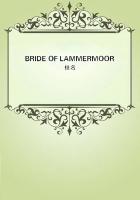"We must bear the blows that the fates rain on us, nor suffer our private grief to dull the sword of justice. Now, as I have said, even though we love them as our brothers or our husbands, yet the Count Rames and his brave comrades should perish by a death of shame, such a death as little befits the flower of Pharaoh's guard."Again she paused, then went on in the midst of an intense silence, for even the physicians ceased from their work to hearken to her decree, as supreme judge of Egypt.
"And yet, and yet, my people, even as I was about to pass sentence upon them, uttering the doom that may not be recalled, some guardian spirit of our land sent a thought into my heart, on which I think it right to take your judgment. If we destroy these men, as I desire to destroy them, will they not say in the Southern Country and in all the nations around, that first they had been told to murder the Prince of Kesh and his escort, and then were themselves executed to cover up our crime? Will it not be believed that there is blood upon the hands of Pharaoh and of Egypt, the blood of a royal guest who, it is well known, was welcomed here with love and joy, that he might--oh! forgive me, I am but a maiden, I cannot say it. Nay, pity me not and answer not till I have set out all the case as best I may, which I fear me is but ill. It is certain that this will be said--aye, and believed, and we of Egypt all called traitors, and that these men, who after all, however evil has been their deed, are brave and upright, will be written in all the books of all the lands as common murderers, and go down to Osiris with that ill name branded on their brows. Yes, and their shame will cling to the pure hands of Pharaoh and his councillors."Now at this picture the people murmured, and some of the noble women there began to weep outright.
"But," proceeded Tua with her pleading voice, "how if we were to take another course? How if we commanded this Count Rames and his companions to journey, with an escort such as befits the Majesty of Pharaoh, to the far city of Napata, and there to lay before the great king of that land by writings and the mouths of witnesses, all the sad story of the death of his only son? How if we sent letters to this Majesty of Kesh, saying, 'Thou hast heard our tale, thou knowest all our woe. Now judge. If thou art noble-hearted and it pleases thee to acquit these men, acquit them and we will praise thee. But if thou art wroth and stern and it pleases thee to condemn these men, condemn them, and send them back to us for punishment, that punishment which thou dost decree.' Is that plan good, my people? Can his Majesty of Kesh complain if he is made judge in his own cause? Can the kings and captains of other lands then declare that in Egypt we work murder on our guests? Tell me, who have so little wisdom, if this plan is good, as I dare to say to you, it seems to me."Now with one voice the Council and all the guests, and especially the guards themselves who were on their trial, save Rames, who still knelt in silence before the Queen, cried out that it was very good. Yes;they clapped their hands and shouted, vowing to each other that this young Queen of theirs was the Spirit of Wisdom come to earth, and that her excellent person was filled with the soul of a god.
But she frowned at their praises and, holding up her sceptre, sternly commanded silence.
"Such is your decree, O my Council," she cried, "and the decree of all you here present, who are the noblest of my people, and I, as I am bound by my oath of crowning, proclaim and ratify it, I, Neter-Tua, who am named Star and Daughter of Amen, who am named Glorious in Ra, who am named Hathor, Strong in Beauty, who am crowned Queen of the Upper and the Lower Land. I proclaim--write it down, O Scribes, and let it be registered this night that the decree may stand while the world endures--that two thousand of the choicest troops of Egypt shall sail up Nile, forthwith, for Kesh, and that in command of them, so that all may know his crime, shall go the young Count Rames, and with him those others who also did the deed of blood."Now at this announcement, which sounded more like promotion than disgrace, some started and Rames looked up, quivering in all his limbs.
"I proclaim," went on Tua quickly, "that when they are come to Napata they shall kneel before its king and submit themselves to the judgment of his Majesty, and having been judged, shall return and report to us the judgment of his Majesty, that it may be carried out as his Majesty of Kesh shall appoint. Let the troops and the ships be made ready this very night, and meanwhile, save when he appears before us to take his orders as general, in token of our wrath, we banish the Count Rames from our Court and Presence, and place his companions under guard."So spoke Tua, and the royal decree having been written down swiftly and read aloud, she sealed and signed with her sign-manual as Queen, that it might not be changed or altered, and commanded that copies of it should be sent to all the Governors of the Nomes of Egypt, and a duplicate prepared and despatched with this royal embassy, for so she named it, to be delivered to the King of Kesh with the letters of condolence, and the presents of ceremony, and the body of Amathel, the Prince of Kesh, now divine in Osiris.
Then, at length, the doors were thrown open and the company dispersed, Rames and the guard being led away by the Council and placed in safe keeping. Also Pharaoh, still senseless but breathing quietly, was carried to his bed, and the dead were taken to the embalmers, whilst Tua, so weary that she could scarcely walk, departed to her chambers leaning on the shoulder of the royal Nurse, Asti, the mother of Rames.















